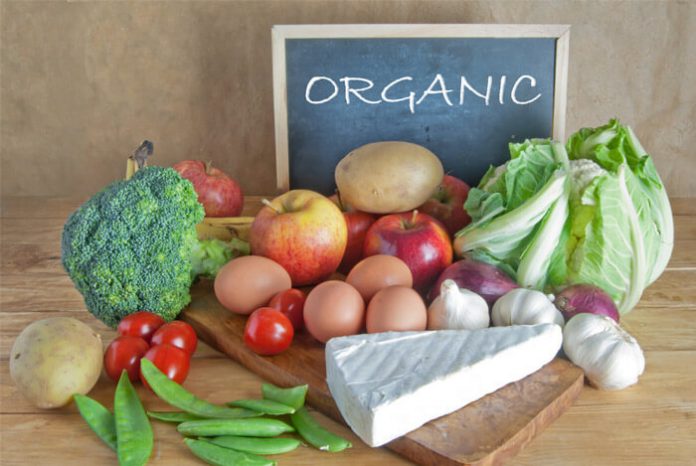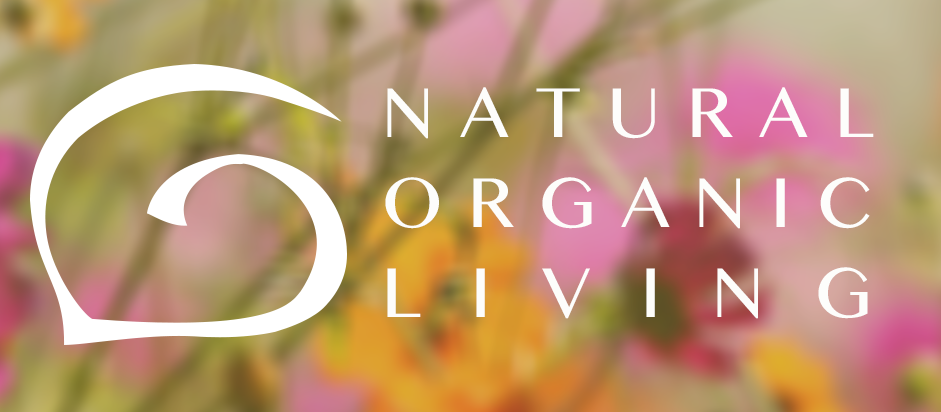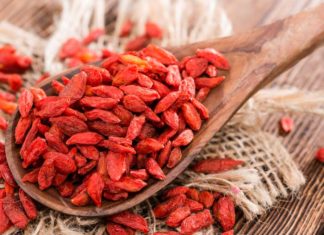
Today, organic food has become very popular. So, is organic foods better for your health? What do all the labels mean? This article can help you understand more about organic food and its benefits.

Organic food brings a variety of benefits to you
What is Organic Food?
Certified organic food refers to food items that are grown, prepared in according to the standard set by a government body. In Australia, this government body is ADAWR(Australia Department of Agriculture and Water Resources). Organic food is food prepared and processed without using any harmful chemical. This means organic food production does not involve the use of chemical pesticides, chemical fertilizers, or chemical preservatives.
The ADAWR categorizes food products into the following sections:
100% organic: Made entirely from organic ingredients.
Organic: Must contain at least 95% organic materials.
Made of organic ingredients: Must contain at least 70% organic materials.
Non-organic: The products may contain less than 70% organic ingredients.

The Australian Certified Organic stamp
Benefits of organic food
Here are some best benefits which organic food gives to our health and our environment:
Organic Food is Healthy and Safe
There are comments like, “Organic food doesn’t have more nutritious – don’t waste your money on this kind of food.” But the Soil Association concludes that an organic diet can even increase consumption of antioxidants, minerals, vitamins, and essential fatty acids.
The two most significant advantages of organic food for health include:
Nutrient-Denser Food:
According to a State of Science Review done in 2008, organic food has more nutritional superiority than non-organic food.
Stronger and More Energetic Body:
No chemicals, pesticides, or processed additives bogging down your system means a lower risk of illness, disease, and disorders in the body.
Organic Food has more Antioxidants
Antioxidant levels in organic food can be up to 70% higher than in current product food. Some labs have found that fresh organic food may increase antioxidant content and help to protect cells from damage. Scientists cannot conclusively agree, why organic plants produce more antioxidants, then currently produces. However, one theory is that they do not need chemical pesticides to protect themselves against disease – they produce their protective compounds, which are antioxidants.
Organic Food Builds Strong Future Generations
The benefits of organic foods might be highest for babies. We would assume that the fetus an unborn baby in the mother womb would be protected, but research by the Environmental Working Group (EWG) shows that pesticides and chemicals in food or other pollutants will cross the placenta hence feed the fetus. This harmful substance can create health risks for babies. Many studies show that pesticides can affect birth defects, lower birth weight, neurological and behavioural problems, disrupted hormone function, autism, and cancer. Pesticides and chemicals have also been linked to infertility problems in males and females. When parents choose organic foods, they are less exposed to fewer health risks.
Organic Food Keeps Our Water Clean
Both pesticides and chemicals don’t belong in drinking water, oceans or lakes, but right now most of the water on earth is at risk. Surface water run-off from non-organic food operations and other non-organic farms can add pesticides to streams, lakes, rivers, and reservoirs. Companies who dispose of herbicides, pesticides and chemicals in wrong way can contaminate soil and our drinking water as well. Many pesticides can’t break down in water and may remain in the water system for many years. However, organic food farming methods can help to keep our water clean, thus preserving the earth’s water supplies.
Organic Food Helps Protect Animals
Wild animals, birds, fish depend upon healthy plants, streams, rivers, and lakes in their habitat. When pesticides infiltrate animal habitats, of course, many creatures suffer. Also, research indicates that organic livestock is more likely to be treated better than non-organic livestock. Therefore, no sick birds, dying sea or freshwater life, or infertile wildlife from chemical exposure.
Organic Food creates Healthy Conditions
Protect cultivation by covering crops, windbreaks and other sustainable farming methods used on organic farms to control soil erosion. Soil from organic farms is also pesticide-free and won’t add pesticides to the air. Besides, organic foods are especially appealing if the environment is one of your concern. Conventional farming methods often cause soil erosion and use dangerous pesticides that can take centuries before they disappear.
Organic Food Conserves Fossil Fuels
Conventional agriculture production uses more fossil fuels than organic food production. In fact, one study shows that sustainable farming methods may use 23% to 56% less fossil energy than conventional farming methods. When buying organic food, consumers can give a hand to support sustainable farming, which saves money spent on energy resources, preserves non-renewable fossil fuels, and reduces global warming impacts.
Organic Food Offers Outstanding Flavour
Taste is a subjective factor, but you’re more likely to get fresher flavour with organic food because it doesn’t contain any artificial preservative that makes it last longer, so it’s often fresher and better tasting. That’s why many top restaurants use organically produces on their menu. Preparation of organic foods is indeed where taste difference come in. Organic food doesn’t contain chemicals, fake flavours, so the authentic taste of the food shines through. For example, try a taste test between organic and non-organic ketchup – the organic tomato sauce tastes like fresh tomatoes while the conventional sauce, taste like it’s seasoned with fake tomato flavouring.

The taste of organic fruits and veggies is often superior to any conventional product
Organic Food is Becoming More Affordable
Many people complain that organic food isn’t affordable. However, some organic products can be more expensive, but you can still save money. There are several ways to save money.
+ Whole foods help to prevent major and minor diseases and illnesses, meaning lower health care costs.
+ Organic food is a higher quality.
+ Eating organic food means more nutrients as organic products tend to have higher levels of essential micronutrients, including zinc, iron and vitamin C.
When people continually buy organic food, it means consumers support for the organic industry. With consumer greater demand and support of this industry, companies will be more able to fulfil all requirements better, with more competitive pricing. The only way we can show government and businesses that people care about quality and affordable organics produce is through supporting this industry.
Not only does organic food protect the planet, but it obviously still protects our health, the health of loved ones, and the health of other living creatures. Well, if you have any question or would like to know more useful information about organic food, please visit our website at https://naturalorganicliving.com.au/.













